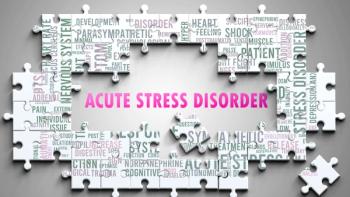
Nearly 1 in 5 Older Veterans in VA Skilled Nursing Facilities Have PTSD. Some May Be Re-Traumatized There
There’s a dearth of research on older veterans with PTSD in long-term care settings. A new study sought to determine who they are.
Many veterans live in skilled nursing facilities — known as nursing homes to most civilians and community living centers (CLS), within the Veterans Administration (VA) — for short or long periods of time. And 19.1% of veterans ages 60 and older in VA CLCs are diagnosed with post-traumatic stress disorder (PTSD), according to new research.
That’s more than triple the proportion of older veterans with PTSD living in the community (5.4%) found by a 2022 study the authors cited, although the methodologies were different.
The
- Among the older veterans in the retrospective cohort analysis, the youngest group (ages 60 to 69) was nearly three times as likely and the middle group (70 to 79) more than five times as likely to be diagnosed with PTSD than the oldest participants (ages 80 and older).
- Among those with PTSD, veterans who were diagnosed during their stay at the CLC or less than six months after discharge were more likely to be older (ages 60 to 79) than those diagnosed up to five years before admission. (About 12.5% of all study participants had a prior PTSD diagnosis; 6.6% were new.)
- Additional differences between the groups: Newly diagnosed vets tended to be male, healthier, rural, without dementia, and residing in larger CLCs. Those with previously diagnosed PTSD tended to be younger, female, sicker, urban, have dementia, and in smaller CLCs.
First author
Drawing data from the VA's comprehensive Corporate Data Warehouse, they identified 57,414 veterans with PTSD age 60 and older who were admitted to and discharged from CLCs during the 2018 to 2022 fiscal years. The analysis included six months after discharge in order to capture diagnoses that might be related to their CLC stay.
Overall, vets diagnosed with PTSD before, during or immediately after their stay were more likely to be younger, female, racial minorities and more clinically complex. The authors had hypothesized that PTSD diagnoses would be more common at larger CLCs because residents would have more access to mental health staff, but the results showed slightly higher rates at facilities with fewer than 100 beds.
Some of the findings, like younger veterans being more likely to have PTSD, may seem counterintuitive. O’Malley and her co-authors, citing other studies with similar findings on age, say that the exact reasons are not fully established. But they note that living longer offers more opportunity to receive treatment and build resilience, and the medical morbidity associated with PTSD could mean that some individuals don’t survive into old age.
Speculating on why newly diagnosed PTSD is more likely in rural areas, they observe that vets living in more sparsely populated regions tend to have fewer visits with medical providers and less access to mental health specialists and may alsobe more stoic and mistrustful of the medical profession or believe that the symptoms will resolve on their own — all of which could lead to underdiagnosis of PTSD that is then caught after admission.
Perhaps the most provocative comments in the paper involve the possibility that CLCs themselves might trigger PTSD in some veterans.
CMS issued new regulations in 2016 requiring skilled nursing facilities to provide trauma-informed care, which is particularly important for veterans. More than 90% of older vets have experienced one or more traumatic events in their lifetime.
Some people with a trauma history experience greater difficulty engaging with healthcare providers, which may lead to delay or avoidance of medical treatment, authors write, potentially leading to more complicated medical conditions and lengthier recovery times. The CLC study found that PTSD was associated with higher clinical complexity and, in one analysis but not another, longer length of stay.
Receiving care in a VA nursing facility, they note, may trigger the emergence PTSD among older veterans or cause the condition to resurface among others, they suggest.
Newsletter
Get the latest industry news, event updates, and more from Managed healthcare Executive.























